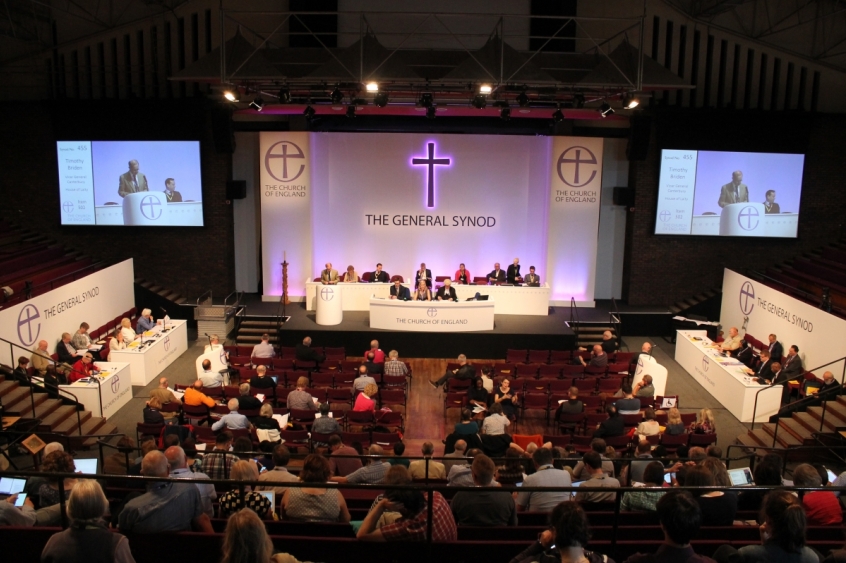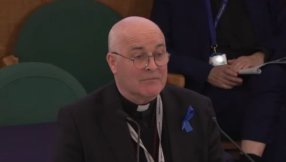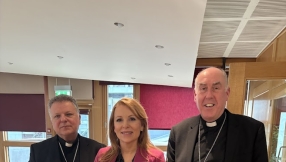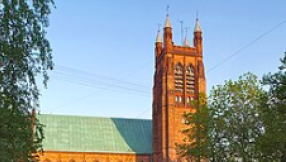
Church of England conservatives on marriage and sexual ethics have held their ground in this month's elections to the General Synod but have not made significant gains.
Peter Owen, co-creator of the Thinking Anglicans website, has published the list of newly-elected members for the 2021-2026 term of the CofE's legislative body.
It is likely that following the Church in Wales vote to allow services of blessing for same-sex couples a similar proposal will go before the new Synod within the next two years.
Sheffield Diocese is an example where theological conservatives have held their electoral ground. On the 200-member House of Laity, Elizabeth Paver - an Anglo-Catholic traditionalist who did not stand for re-election - has been replaced by Anna De Castro.
De Castro is part of the group from the conservative evangelical Christ Church Fulwood which recently joined Oughtibridge Parish Church. She joins Fulwood conservative evangelical, Jane Patterson, who has been re-elected.
On the 190-strong House of Clergy, an evangelical who holds to the traditional teaching, Canon Rick Stordy, has replaced the former chaplain to the Bishop of Sheffield, Canon Geoffrey Harbord, an Anglo-Catholic. But Ven Malcolm Chamberlain, the Archdeacon of Sheffield and Rotherham and a vociferous campaigner for same-sex marriage acceptance in the CofE, was re-elected
A formidable force for the traditional Anglican teaching, Christian Concern's chief executive, Andrea Minichiello Williams, did not stand again in Chichester Diocese, having moved out of the area. But two Christian Concern staffers, Rebecca Hunt and Ben John, were elected to the House of Laity, for Portsmouth and St Albans Dioceses respectively.
In Oxford Diocese, Prudence Dailey, a theological conservative, was re-elected to the House of Laity, while leading LGBT campaigner Jayne Ozanne was also re-elected. Another prominent revisionist campaigner, Professor Helen King, comes back onto Synod after a 25-year break.
In London, conservatives have held their ground in the House of Laity. Conservative evangelicals Deborah Buggs and Sarah Finch were re-elected. Rev Charles Skrine, the new rector of conservative evangelical flagship church, All Souls Langham Place, Oxford Circus, was re-elected to the House of Clergy. But a prominent evangelical campaigner for the traditional teaching in the 2015-2021 term, Rev Dr Jason Roach, did not stand again this time.
The leading 'Save the Parish' campaigner, Rev Marcus Walker, Rector of St Bartholomew the Great in the City of London, was elected for the first time.
Legislation to introduce services of blessing in CofE churches for same-sex couples after civil marriages or partnerships would require a two-thirds majority in all three Houses and then would have to be ratified by Parliament.
It is difficult to be precise but a rough assessment would lead to the tentative conclusion that there would be such a majority in the Houses of Bishops and Clergy for the change and possibly in the House of Laity. Conservatives do not seem to have made sufficient gains to overturn the level of support that there probably already was in the 2015-2021 House of Laity.
It is arguable that the General Synod went woke in 2015 but revisionists are having to wait for the new five-year term, after the completion of the Living in Love and Faith consultation, before their triumph can take concrete legislative form in the ditching of the traditional Christian sexual ethic.
If they succeed with same-sex blessing services in the current term, full same-sex marriage services would surely be a shoo-in for them in 2026-2031.













